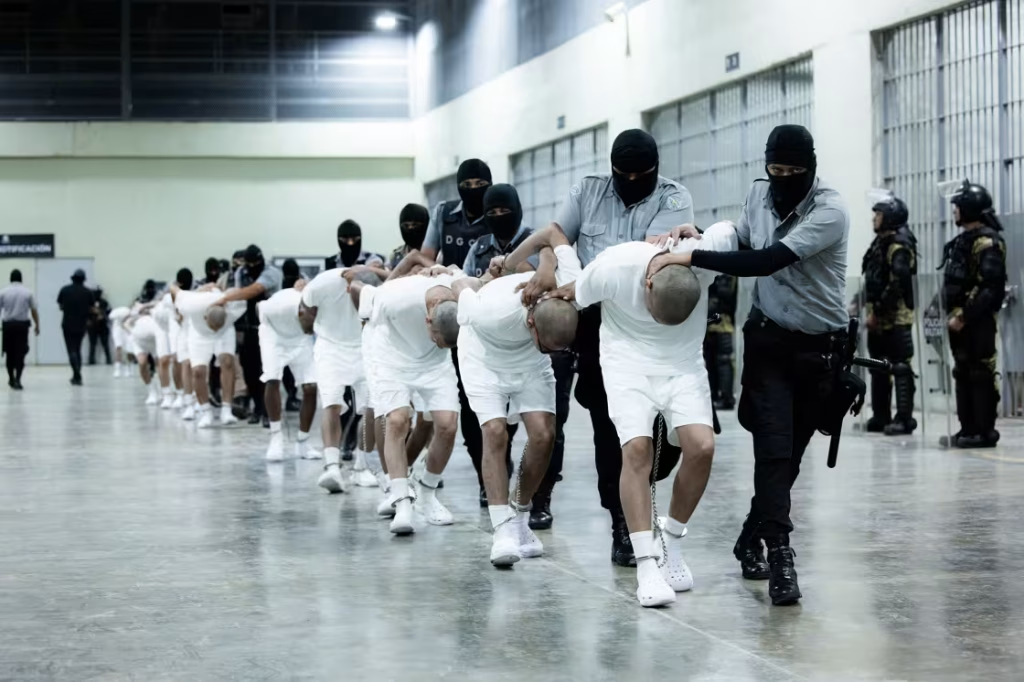
Kilmar Abrego Garcia was stripped naked, had his head shaved, was beaten, and forced to kneel overnight for hours during his detention at El Salvador’s notorious CECOT prison, according to a new court filing by his attorneys. He also lost more than 30 pounds during his imprisonment, they said.
A Maryland resident, Abrego was deported to El Salvador in March by the Trump administration in what government officials later acknowledged was an “administrative error.” He was returned to the U.S. in June to face federal charges. At the time of his removal, Abrego was protected from deportation under a 2019 court order.
His case quickly drew national attention and ignited debate over the Trump administration’s aggressive immigration policies and the pace at which deportations were being carried out—sometimes, critics said, without due process.
Abrego was deported on March 15 and placed into CECOT, a so-called megaprison known internationally for its harsh and often brutal conditions.
According to an amended complaint filed Wednesday in a federal lawsuit by Abrego’s wife in the U.S. District Court for the District of Maryland, he was subjected to repeated beatings, sleep deprivation, psychological abuse, and inadequate food during his time there.
The complaint alleges that on arrival at CECOT, Abrego was forced to undress, issued prison clothing, kicked in the legs with boots, and beaten on the head and arms to hurry the process. His head was shaved, and he was frog-marched to a cell while being struck with wooden batons.
By the next day, Abrego had “visible bruises and lumps all over his body,” the filing states.
In the overcrowded cell he shared with 20 other Salvadorans, detainees were forced to kneel from approximately 9 p.m. to 6 a.m., with guards beating anyone who collapsed from exhaustion. Abrego was denied access to a bathroom and soiled himself, according to the complaint.
Prisoners were confined to metal bunks without mattresses in windowless cells lit by harsh fluorescent lights that remained on 24 hours a day, the attorneys wrote.
Abrego was repeatedly threatened with being transferred to cells with violent gang members who, guards told him, would “tear [him] apart,” the filing says. He reportedly witnessed violent assaults among inmates, with no intervention by prison staff.
“Screams from nearby cells rang out through the night without any response from guards or personnel,” the complaint adds.
Within his first two weeks at CECOT, Abrego lost 31 pounds, his attorneys said.

According to the complaint, Abrego and four other detainees were moved to a different module within CECOT on April 9. However, the following day, Abrego was transferred alone to the Centro Industrial prison facility in Santa Ana, El Salvador.
Throughout his detention, Abrego was denied contact with his family and access to legal counsel, his attorneys said. That changed only after U.S. Sen. Chris Van Hollen (D-Md.) visited him on April 17.
In April, the U.S. Supreme Court ruled that Abrego’s deportation was “illegal” and upheld a judge’s order requiring the administration to facilitate his return to the United States.